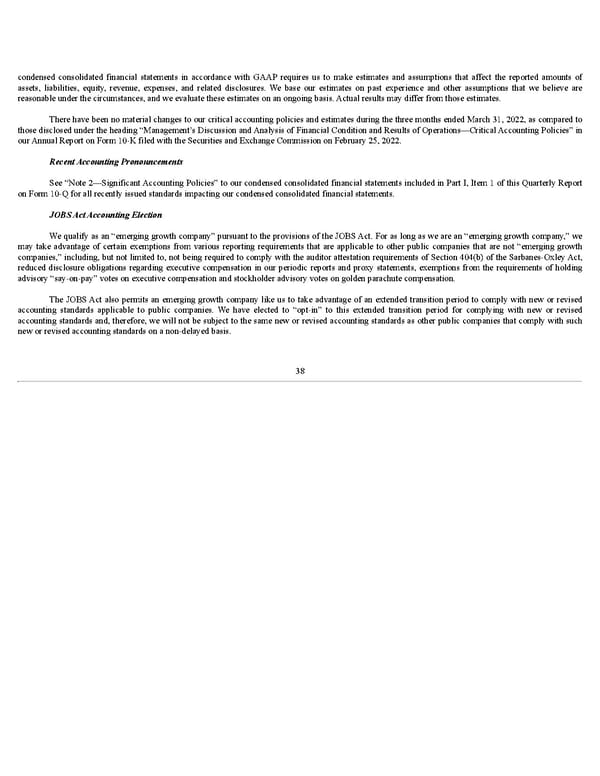condensed consolidated financial statements in accordance with GAAP requires us to make estimates and assumptions that affect the reported amounts of assets, liabilities, equity, revenue, expenses, and related disclosures. We base our estimates on past experience and other assumptions that we believe are reasonable under the circumstances, and we evaluate these estimates on an ongoing basis. Actual results may differ from those estimates. There have been no material changes to our critical accounting policies and estimates during the three months ended March 31, 2022, as compared to those disclosed under the heading “Management’s Discussion and Analysis of Financial Condition and Results of Operations—Critical Accounting Policies” in our Annual Report on Form 10-K filed with the Securities and Exchange Commission on February 25, 2022. Recent Accounting Pronouncements See “Note 2—Significant Accounting Policies” to our condensed consolidated financial statements included in Part I, Item 1 of this Quarterly Report on Form 10-Q for all recently issued standards impacting our condensed consolidated financial statements. JOBS Act Accounting Election We qualify as an “emerging growth company” pursuant to the provisions of the JOBS Act. For as long as we are an “emerging growth company,” we may take advantage of certain exemptions from various reporting requirements that are applicable to other public companies that are not “emerging growth companies,” including, but not limited to, not being required to comply with the auditor attestation requirements of Section 404(b) of the Sarbanes-Oxley Act, reduced disclosure obligations regarding executive compensation in our periodic reports and proxy statements, exemptions from the requirements of holding advisory “say-on-pay” votes on executive compensation and stockholder advisory votes on golden parachute compensation. The JOBS Act also permits an emerging growth company like us to take advantage of an extended transition period to comply with new or revised accounting standards applicable to public companies. We have elected to “opt-in” to this extended transition period for complying with new or revised accounting standards and, therefore, we will not be subject to the same new or revised accounting standards as other public companies that comply with such new or revised accounting standards on a non-delayed basis. 38
 Q1 2022 10Q Page 41 Page 43
Q1 2022 10Q Page 41 Page 43